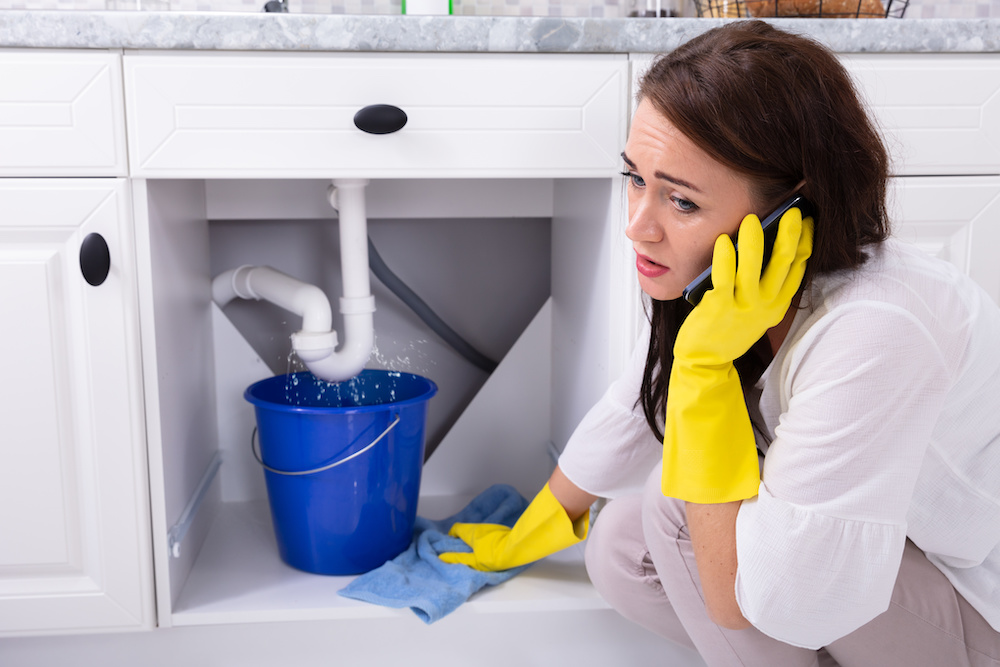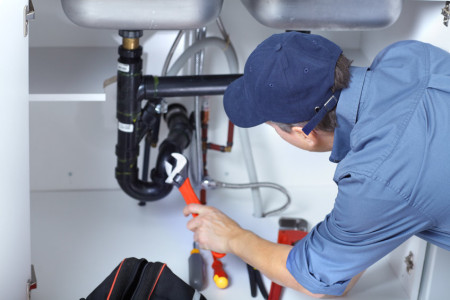We've found this great article about What to Do During a Plumbing Emergency down the page on the internet and reckoned it made sense to write about it with you on this page.

Plumbing emergencies can strike at any time, creating stress and anxiety and prospective damage to your home. Whether it's a burst pipe, a blocked drain, or a leaking faucet, understanding exactly how to handle the circumstance up until an expert plumbing technician shows up can save you from additional problems. This short article offers essential emergency situation pipes pointers to aid you alleviate damages and restore control during a plumbing crisis.
Switch off the Water
The very first step in any type of plumbing emergency is to shut down the water. For local problems, such as a leaking tap or commode, shut off the shutoff near the component. In the case of a major leakage or ruptured pipe, locate your home's main water shut-off shutoff and turn it off immediately. Knowing the area of these valves ahead of time can save beneficial time during an emergency situation.
Turn off Your Water Heater
In specific emergencies, such as a burst pipeline, it's a good idea to shut down your water heater. This protects against overheating or damages to the device when water stops moving. Switch off the power supply to the water heater (electrical or gas) and allow it cool off to avoid possible risks.
Temporarily Quit a Burst Pipeline
A burst pipeline can result in substantial water damage in mins. To alleviate the issue:
Call an expert plumbing technician immediately to deal with the issue completely.
Have an Emergency Situation Plumbing Set
Prepare a fundamental pipes emergency situation kit to deal with minor problems properly. Your package should include:
Having these tools available can make a considerable difference in your ability to handle emergency situations.
Unclog Drains Pipes Safely.
A blocked drain can be a discouraging and untidy problem. Below's just how to tackle it:.
If these methods do not work, avoid making use of extreme force, as it might intensify the blockage.
Take Care Of Overflowing Toilets.
An overflowing commode can trigger immediate disorder. Right here's what you should do:.
Address Small Leakages with Temporary Repairs.
Tiny leaks can rapidly come to be considerable troubles if left untreated. Use these short-lived repairs till expert help shows up:.
While these repairs aren't irreversible, they can assist decrease water loss and damage.
Manage Frozen Pipes Very Carefully.
In cooler climates, icy pipelines are a common emergency situation. If you suspect a frozen pipe:.
Know When to Call a Professional.
While quick fixes can help temporarily, specific plumbing problems require immediate professional attention. Call a plumbing if:.
Promptly getting in touch with a professional ensures the issue is resolved appropriately and protects against more issues.
Stop Additional Damage.
Taking fast activity to lessen damages can save you time and money over time. Right here's how:.
Verdict.
Pipes emergency situations can be overwhelming, but with the right knowledge and devices, you can handle the circumstance efficiently until help gets here. By shutting off the supply of water, addressing small leaks, and making use of short-lived repairs, you can reduce damage and maintain your home safe. Keep in mind, these suggestions are temporary remedies; always consult a licensed plumbing professional to deal with the root cause of the trouble. Preparation and fast reasoning are your finest allies in any pipes emergency situation.
8 Helpful Tips for Managing Plumbing Emergencies at Home
If your plumbing system hasn’t failed once, wait for it because almost everyone has a story to tell. Sometimes, it could be simple emergencies such as a leaking pipe, a blocked cistern, or even a big burst pipe. In situations like this, you need to have some handy tips to save you some money and from possible damages.
Take care of minor issues early.
Sometimes, you could have avoided an emergency by taking proactive measures while it was still early. Some major plumbing emergencies can be a result of an ignored minor issue. We recommend that you have items like plumbing tapes and other related items. A plumbing tape can allow you to manage minor leaks before the plumber arrives.
Cut off the water supply.
This tip is essential in almost any type of leakage problem. For problems like minor leakages in the toilet or kitchen, turn off the supply that takes water to the affected pipes. If the leakage is a major pipe, you must shut off the supply valve to the entire building. This will help you avoid flooding your home and neighbors if you share a flat.
Know your plumbing system
Folks typically move into a new apartment without understanding the water supply around the building. This can prove disastrous if a water emergency arises and the plumber is far away. The previous tip will prove useless if you don’t practice this one. More importantly, know where your water shut-off valve is located – you’ll need that knowledge to prevent potential home floods.
Have some common handy tools
There are lots of plumbing emergencies that you can handle without hiring a plumber. That’s why you must keep some tools available always. Some tools that you can use to fix simple plumbing emergencies easily include plumbing tapes, screwdrivers, thread seal tapes, plungers, pliers, tape measures, and rubber gloves.
Insulate your pipes from cold
You’ll save yourself from many plumbing expenses if you protect your water pipes from the cold. This is because of the harmful effects that cold weather can have on your pipes. During winter, your pipes can burst from being overly expected to freezing temperatures. So, make sure insulators are there to keep the pipes working correctly.
Avoid practices that will clog your toilet.
Many people indulge in practices that can damage the plumbing system of the entire building. One of these is when they use their toilet to dispose-off garbage. They flush all kinds of things, such as paper towels, bandages, hairs, female sanitary products, etc., down the toilet. This will block your toilet in the long run, incurring unnecessary expenditures. Dump such waste in the trash instead.
Check your dials regularly.
Sometimes, there could be leakages in your home without noticing them in time. So, constantly monitor your water meter dial. If the dial is reading when there is nobody using water, this is an indicator that there is leaking. Check for leaks immediately. Call a plumber as soon as possible if you can’t find any.
https://www.constructionplacements.com/8-helpful-tips-for-managing-plumbing-emergencies-at-home/

I am very focused on Expert Tips for Emergency Plumbing Repairs and I hope you appreciated the blog posting. Sharing is caring. Helping people is fun. Thank you so much for going through it.
Schedule Today